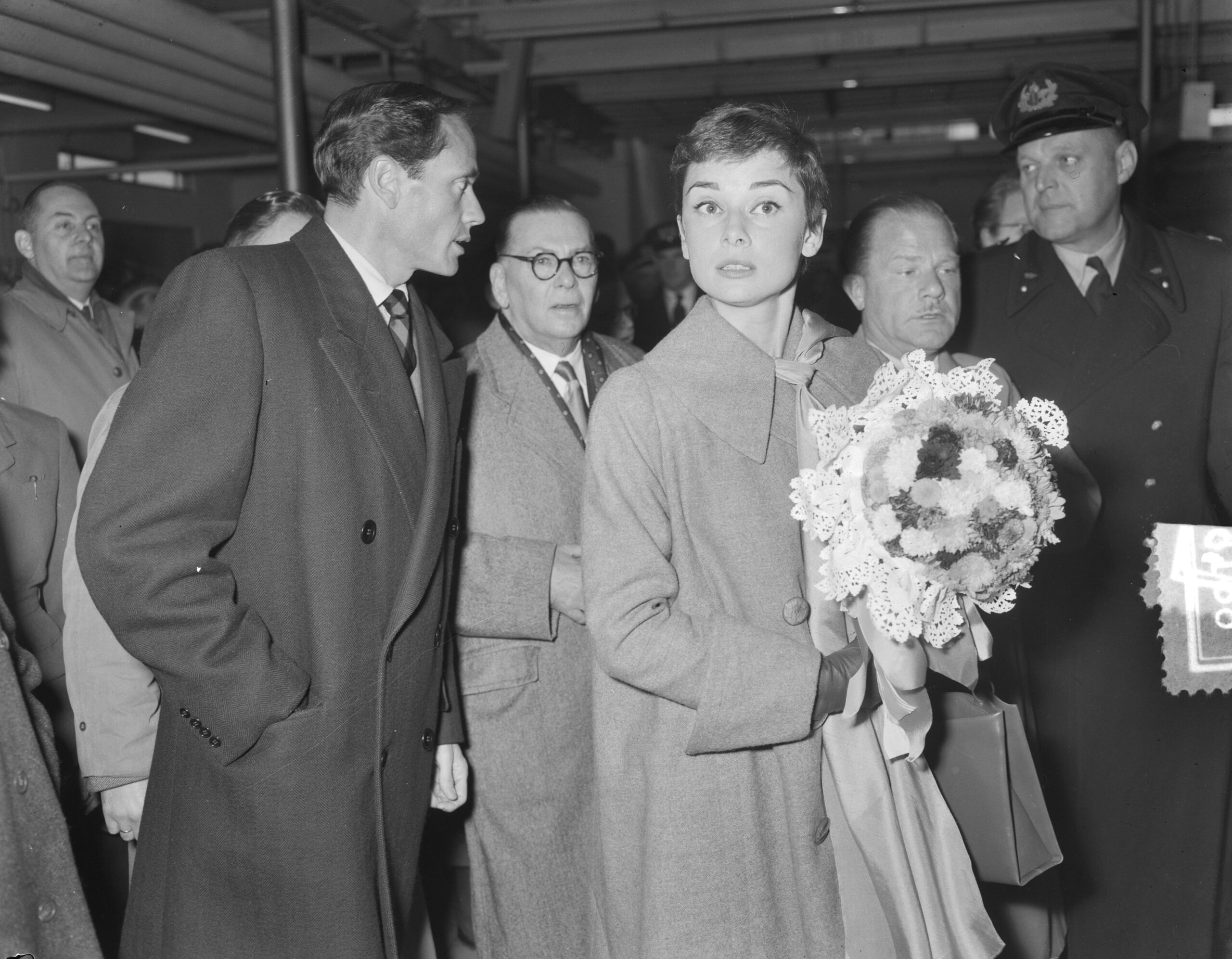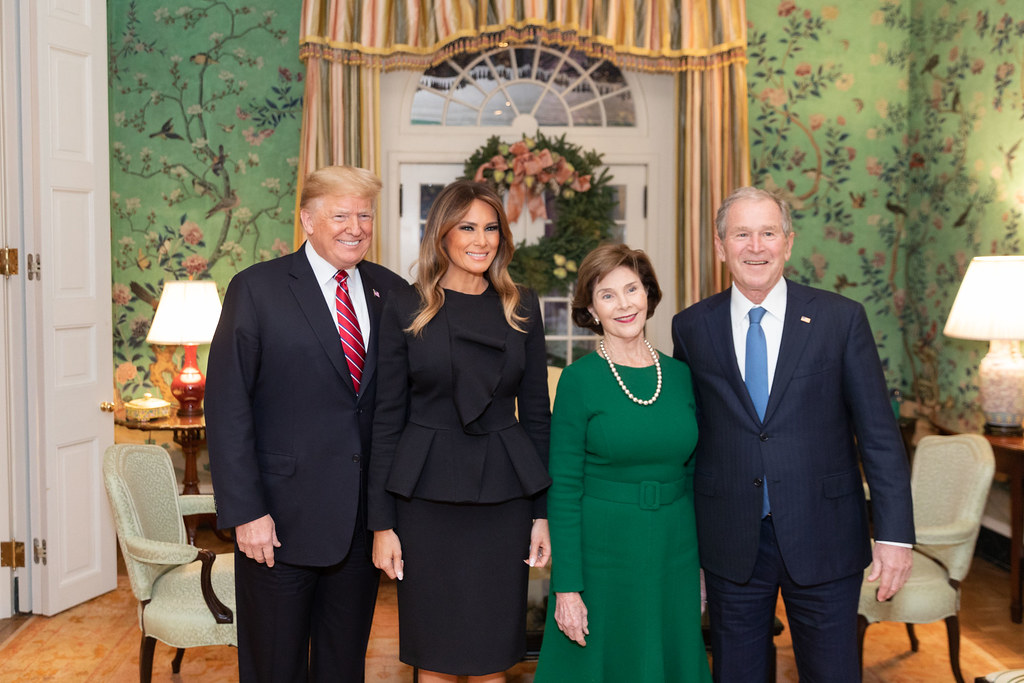
As the dust settles on a commanding victory in the 2024 election, President Donald J. Trump has officially commenced his second term in the White House. He is poised to build on a legacy defined by profound shifts in American policy and a determined rejection of what he terms the “extremist policies of the radical left.” His mandate, fresh and undeniable, empowers him to pursue tangible improvements in the quality of life for the American people, marking a renewed era of his distinct political vision.
This renewed focus encompasses strategic imperatives such as bringing an end to what he calls “endless wars,” fortifying the nation’s borders, and unleashing the full potential of the American economy. The administration asserts that these efforts are designed to afford all Americans the opportunity to pursue their individual versions of the American Dream, reflecting a core tenet of the “Make America Great Again” movement that propelled him to power.
In his first administration, President Trump presided over a period of significant policy transformation. He championed and successfully passed record-setting tax and regulation cuts, a move widely credited by his supporters as having spurred economic growth. His tenure also witnessed the achievement of energy independence, a goal long sought by many in the United States, and the replacement of the North American Free Trade Agreement (NAFTA) with the United States-Mexico-Canada Agreement (USMCA), reshaping continental trade relations.
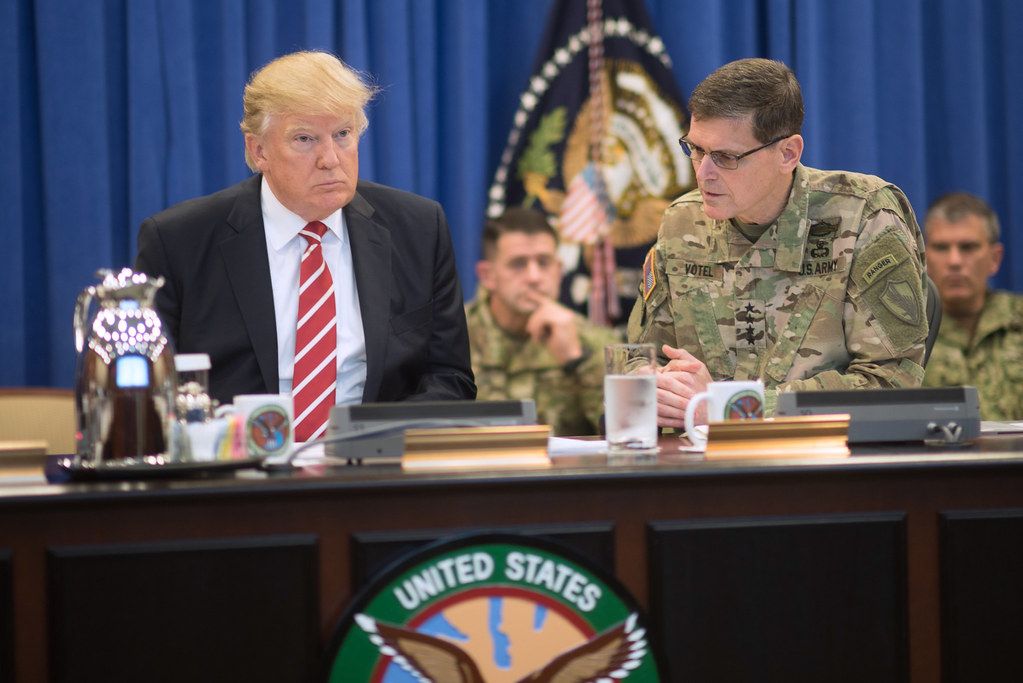
Further demonstrating a commitment to national defense, President Trump directed a substantial $2 trillion investment to completely rebuild the military, alongside the historic launch of the Space Force, a new branch of the armed services. Globally, his administration announced the obliteration of the ISIS Caliphate, a significant military achievement, and achieved a major breakthrough in peace efforts in the Middle East, altering long – standing geopolitical dynamics.
Domestically, his first term was marked by the passage of the most significant Veterans Affairs reforms in half a century, addressing long – standing issues within the veteran healthcare system. He also oversaw the confirmation of over 250 federal judges, including three Supreme Court justices, fundamentally reshaping the federal judiciary. Landmark bipartisan Criminal Justice Reform was signed into law, and efforts were made to lower drug prices, protect Medicare and Social Security, and secure the nation’s borders.
Donald J. Trump, whose life story is often presented as the embodiment of the American success narrative, has consistently set benchmarks for business and entrepreneurial excellence. His formidable presence in real estate, sports, and entertainment laid the groundwork for his unprecedented entry into politics and public service, transforming his brand into a political force.
Read more about: California: A Comprehensive Look at the Golden State’s Enduring Legacy, Dynamic Landscape, and Global Influence
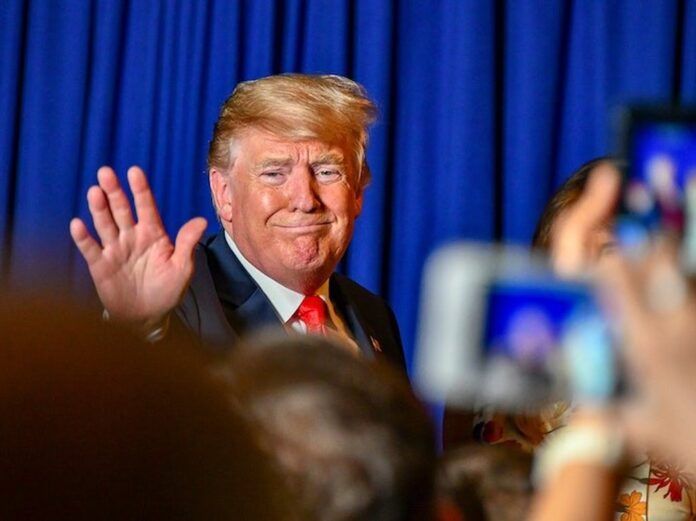
Remarkably, he clinched the Presidency in his very first bid for any political office, defying conventional wisdom. His subsequent victory, securing a second term despite what his campaign describes as “several assassination attempts and the unprecedented weaponization of lawfare against him,” further solidified his image as a political outlier. Time and again, President Trump has defied the odds, a testament to his fundamental belief in the exceptionalism of the American spirit and his unwavering desire to see the nation thrive.
A distinguished alumnus of the University of Pennsylvania’s Wharton School of Finance, President Trump seamlessly followed in his father’s footsteps into the intricate world of real – estate development. It was in New York City that he truly made his indelible mark, where the Trump name rapidly became synonymous with the most prestigious addresses in Manhattan, a recognition that soon expanded to encompass properties across the world.
Beyond his business acumen, President Trump is also an accomplished author, with a bibliography boasting more than fourteen bestsellers. His seminal work, “The Art of the Deal,” is widely regarded as a business classic, offering insights into his negotiating philosophy and strategic approach.
The President is a family man, with five children—Barron, Don Jr., Ivanka, Eric, and Tiffany—and is the proud grandfather of eleven grandchildren. The broader family unit, including First Lady Melania Trump, remains a visible part of the administration’s public profile.
Read more about: The Bureau of Labor Statistics Under Fire: A Deep Dive into How America’s Jobs Report is Compiled and Revised
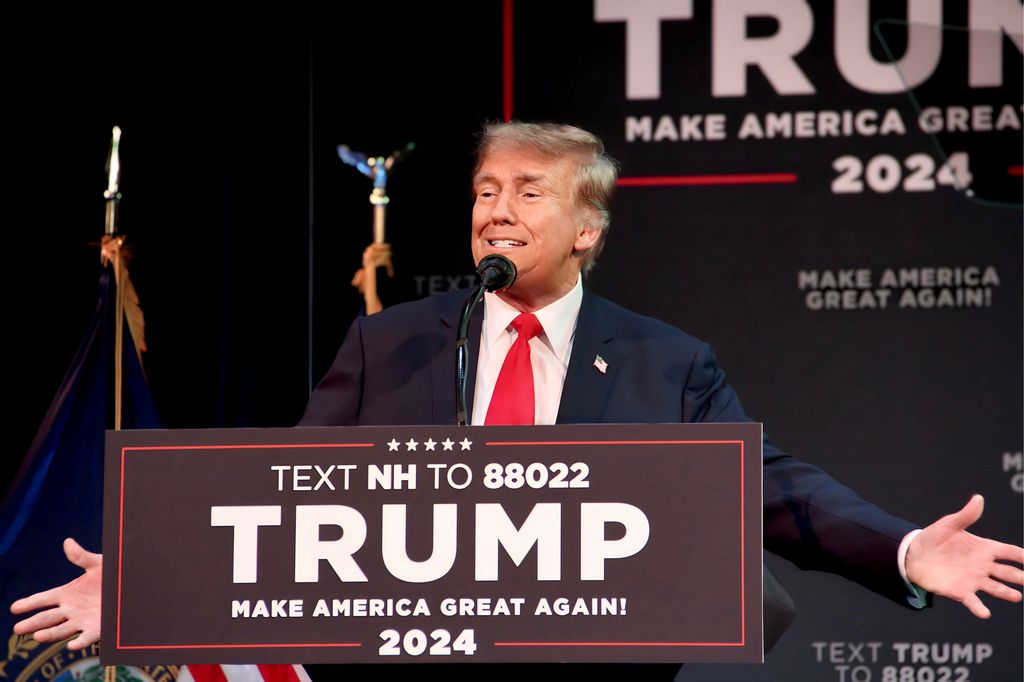
Even as President Donald Trump recently settled into his second term as the President of the United States, having been in office for merely months, the political landscape is already abuzz with activity. Potential 2028 GOP presidential nominees are reportedly making their initial moves, signaling a forward – looking political cycle. Intriguingly, the undisputed leader of the ‘Make America Great Again’ (MAGA) movement appears to have already hinted at his preferred candidate for the race that is still years away.
On a recent Tuesday, President Trump made a significant suggestion: he posited that Vice President JD Vance was “the most likely” heir apparent to the influential MAGA movement. This statement, delivered with characteristic directness, immediately positioned Vance as an undeniable future presidential candidate, setting the stage for speculation and discussion within the Republican Party and beyond.
Reporters, ever keen to unearth insights into future political dynamics, posed the critical question, inquiring whether Vance was indeed a popular name circulating for the potential 2028 Republican ticket. Without hesitation or circumlocution, Trump affirmed, “Well, I think most likely.” Further solidifying his endorsement of the suggestion that JD Vance was his campaign’s “heir apparent,” the 79 – year – old US leader added a pragmatic justification: “In all fairness, he’s the vice president.”
Yet, at the same time, President Trump acknowledged the temporal reality, noting that it was “basically too early to talk about the issue.” This customary caution, however, did not deter him from continuing to lavish praise upon Vance, adding, “…but certainly he’s doing a great job, and he would probably be the favorite at this point.” This most recent admission on the matter aligns somewhat with earlier sentiments he expressed in February about Vance. At that time, while calling him “very capable,” Trump similarly asserted that it was still premature to definitively name a leading candidate for the 2028 presidential race, maintaining an air of suspense.
Read more about: The Bureau of Labor Statistics Under Fire: A Deep Dive into How America’s Jobs Report is Compiled and Revised
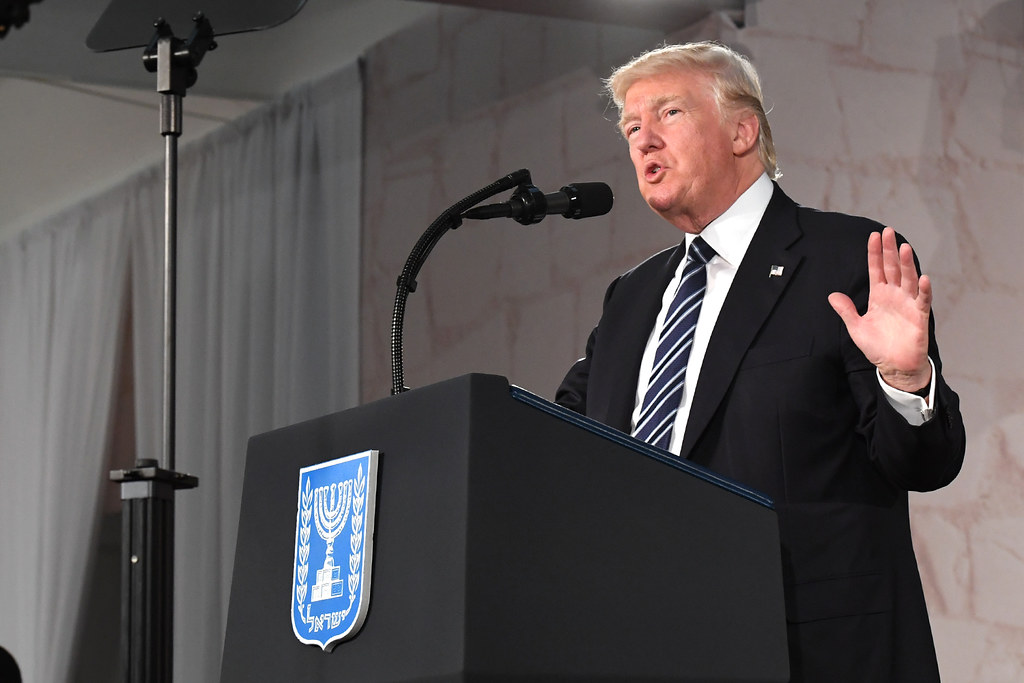
Beyond the singular focus on Vance, President Trump also strategically broadened his perspective to include US Secretary of State Marco Rubio. Rubio has, by all accounts, been an ardent and effective partner in the American president’s rigorous immigration crackdown efforts, cementing his reputation within the administration. It is worth recalling that in 2024, Rubio’s name also surfaced as a strong contender for a potential running – mate for Trump, underscoring his consistent proximity to the center of power.
“I think Marco is also somebody who might collaborate with JD in some form,” President Trump continued, unveiling a fascinating potential future scenario. He proposed that a ticket featuring Vance as president and Rubio as vice – president could be something Americans might anticipate in an upcoming Republican nomination, painting a vivid picture of a potential future leadership dynamic for the party.
Further illustrating the depth of talent he perceives within his administration, Homeland Security Secretary Kristi Noem and Attorney General Pam Bondi were among the other prominent figures accompanying Trump on that Tuesday. Consequently, the President pointed to them, stating, “I also think we have incredible people, some of the people on the stage right here.” This broader acknowledgment suggests a robust field of potential future leaders, even as specific names gain prominence.
Read more about: The Bureau of Labor Statistics Under Fire: A Deep Dive into How America’s Jobs Report is Compiled and Revised
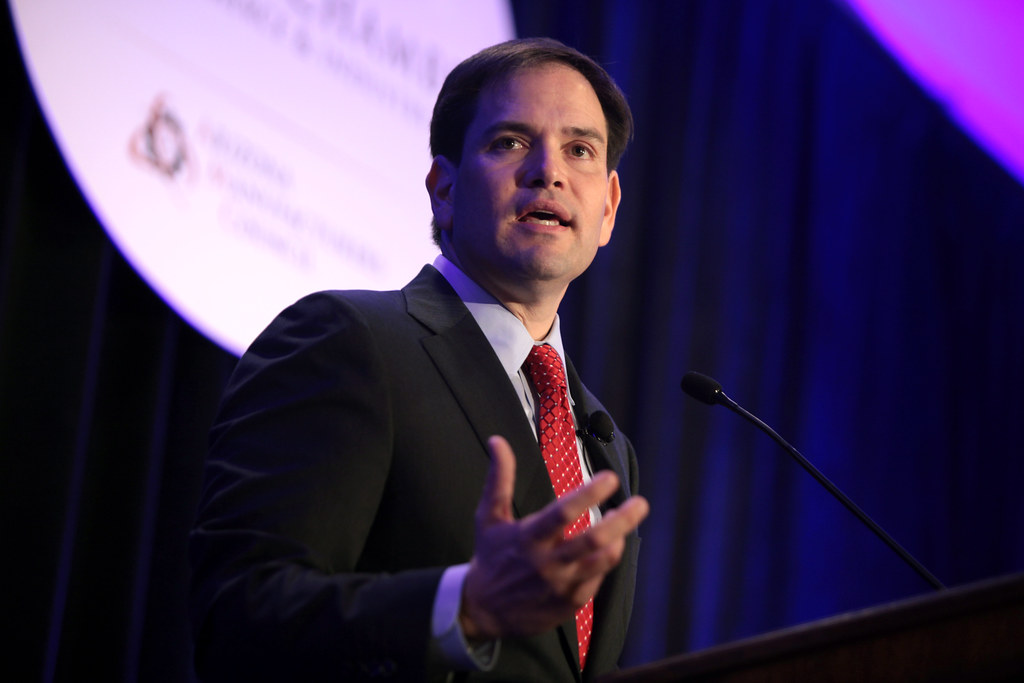
On the other side of this burgeoning political speculation, Marco Rubio has already briefly addressed the ongoing discussions surrounding the 2028 GOP ticket. In a conversation with the President’s daughter – in – law, Lara Trump, on Fox News, Rubio lauded Vance as a “great nominee.” He went on to commend Vance’s performance as the US Vice President, stating, “He’s a close friend, and I hope he intends to do it, but I know it’s kind of early,” reflecting a shared sentiment regarding the timing of such high – stakes discussions.
Meanwhile, Vice President Vance appears to share a similar perspective with Rubio concerning their friendship, despite their emerging roles as potential rivals for the 2028 VP pick. Vance recently told CNN that Rubio was “incredibly competent and reliable, and he’s also one of my closest friends in the administration,” underscoring a bond that transcends mere political alliance and hints at a deeper personal connection.
Moreover, Rubio has not unequivocally dismissed the prospect of embarking on his own presidential campaign. Potentially keeping his options open and hinting at throwing his name into the mix, he stated, “You never know what the future holds.” This measured response maintains an element of intrigue, suggesting that while the current focus might be on a joint ticket, individual ambitions are not entirely off the table.
Read more about: The Weight of War: How Ukraine Became President Trump’s Defining Conflict
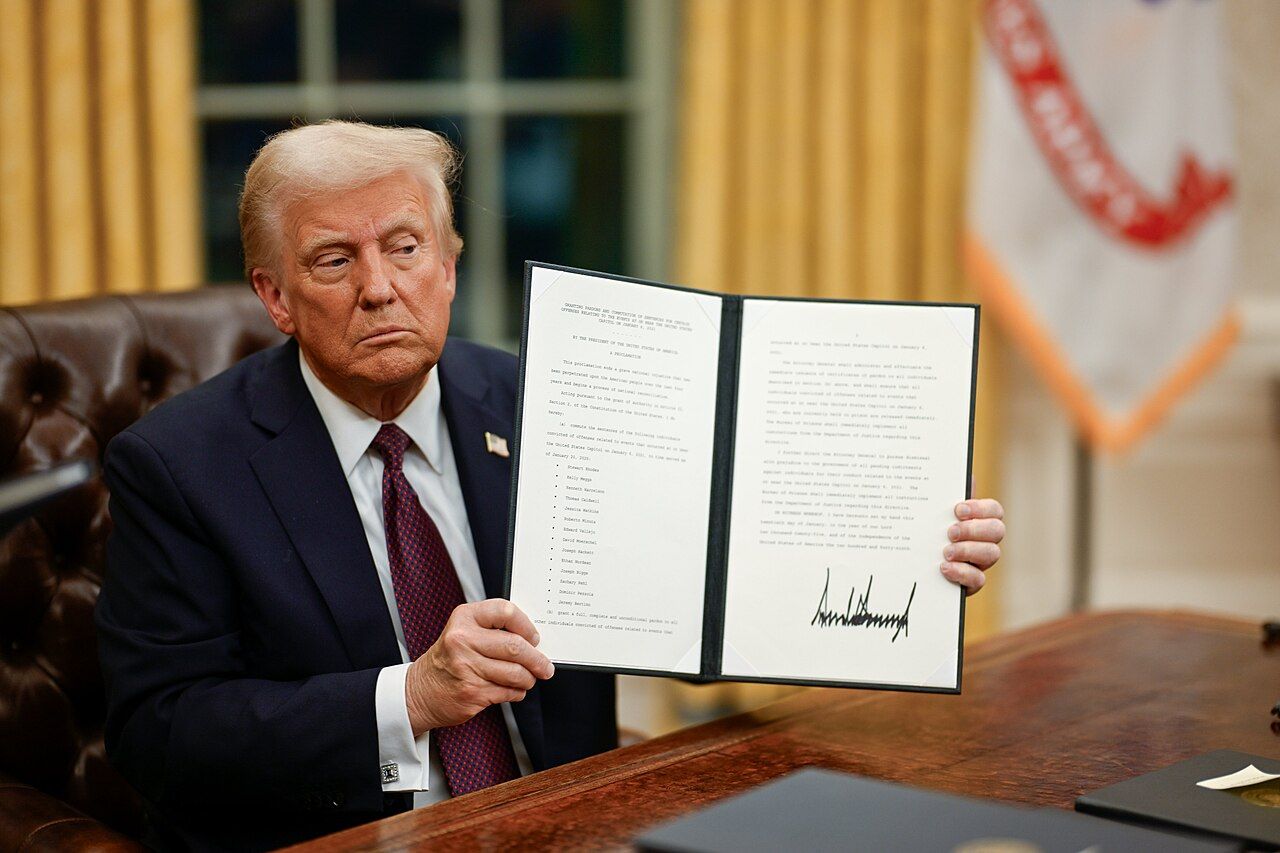
President Donald Trump was once again pressed on the crucial question of who would succeed him as the torchbearer of the MAGA movement. On this occasion, the 79 – year – old leader sounded more definitive than ever before: Vice President JD Vance is unequivocally his heir apparent. This pivotal declaration occurred during a press conference following the signing of an executive order to establish a task force for the 2028 Los Angeles Olympics.
During the exchange, Trump was directly asked whether he was prepared to name Vance as the next MAGA leader and, in a broader sense, clear the entire Republican field for the 2028 Presidential elections. In response, Trump reiterated with conviction, “Most likely, in all fairness,” emphasizing that JD Vance is indeed the individual he envisions carrying the MAGA torch forward. He also thoughtfully mentioned Secretary of State Marco Rubio as someone who could potentially “team up with JD in some form,” hinting at strategic alliances within the party’s future leadership.
Trump further referenced other rising Republican leaders, particularly governors, as possible future figures within the party, indicating a broader pool of talent. However, he quickly tempered these remarks by adding, “It’s too early to talk about it,” maintaining a degree of strategic ambiguity even amidst his most direct endorsements.
Barely seven months into his second term, President Trump has already found himself fielding persistent questions about his eventual successor as the leader of the MAGA movement. While he has demonstrably shown burgeoning support for Vice President JD Vance, Trump has concurrently maintained a cautious stance, consistently insisting that it remains too soon to anoint a definitive successor. Adding to the complexity, he has also continued to float other names, prominently including Secretary of State Marco Rubio, as viable contenders for future leadership.
Read more about: The Bureau of Labor Statistics Under Fire: A Deep Dive into How America’s Jobs Report is Compiled and Revised
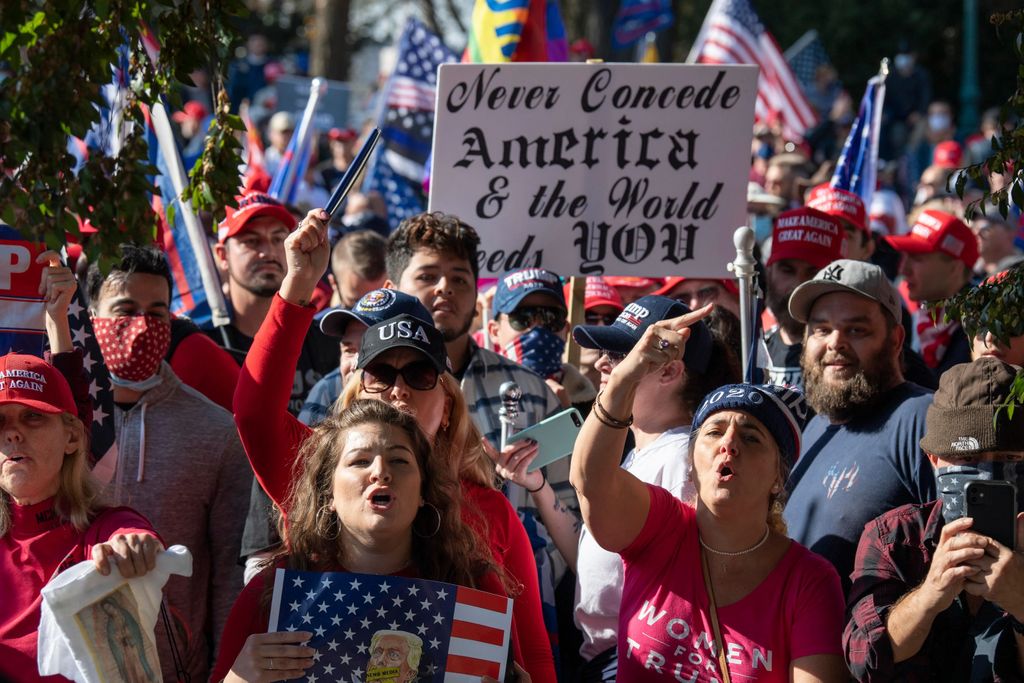
Speculation regarding the future of the MAGA movement is inextricably linked to ongoing discussions about the possibility of Trump seeking an unprecedented third term, an endeavor that the Constitution expressly prohibits. While Trump recently stated he would “probably not” pursue a third term, his subsequent remark, “I’d like to,” left the door subtly ajar, fueling continued debate and intrigue among his supporters and political observers.
Indeed, prominent MAGA figures such as Steve Bannon and Congressman Andy Ogles have openly advocated for amending the Constitution to permit Trump to run again, demonstrating a fervent desire within a segment of his base for his continued leadership. However, any such constitutional amendment effort faces monumental legal and political hurdles and is widely considered to be highly unlikely to succeed in Congress, underscoring the formidable challenges inherent in such a radical proposal.
President Donald Trump’s Tuesday suggestion that Vice President JD Vance is “most likely” the heir apparent to the Make America Great Again movement represents his most significant endorsement to date of Vance as a future presidential candidate. This pronouncement carries substantial weight, providing clarity to what has been a subject of intense internal – party discussion.
Read more about: Decoding Apparitions: The Psychology and Science Behind Why People See Ghosts
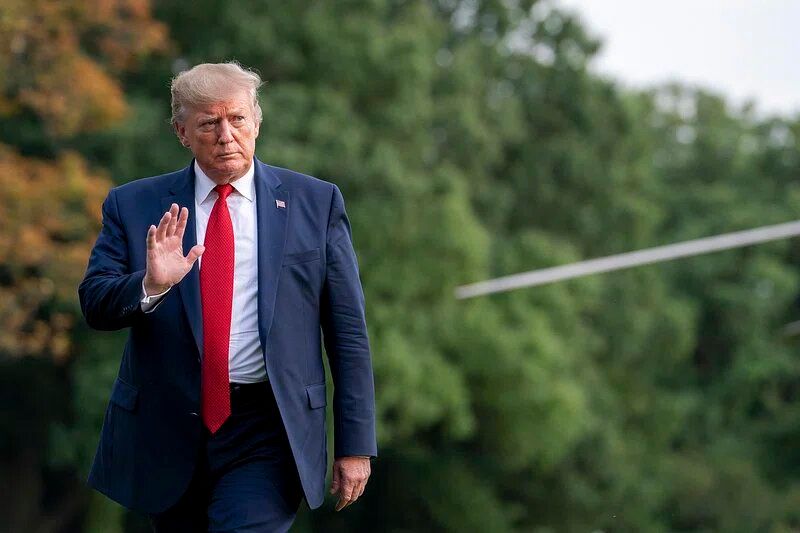
Furthermore, Trump’s proposal that Vance and Secretary of State Marco Rubio consider joining forces for a future Republican ticket adds a fascinating dimension to the 2028 political landscape, suggesting a potential dream team for the party. “Well, I think most likely,” Trump told reporters when asked whether Vance was MAGA’s “heir apparent.” He reinforced this by stating, “In all fairness, he’s the Vice President.”
Expanding on the potential synergy, Trump elaborated, “I think Marco is also somebody who might get together with JD in some form.” He then broadened his view to include other key figures, adding, “I also think we have incredible people, some of the people on the stage right here.” Among those present with Trump on Tuesday were Homeland Security Secretary Kristi Noem, who is also widely believed to harbor higher political ambitions, and Attorney General Pam Bondi, further illustrating the depth of talent within his inner circle.
“It’s too early, obviously, to talk about it, but certainly he’s doing a great job, and he would probably be the favorite at this point,” Trump stated regarding Vance, maintaining a balance between early anointing and acknowledging the preliminary stage of these discussions. Rubio, for his part, had previously dismissed talks of entering the 2028 race last month by remarking that Vance would be a “great nominee.” “I think he’s doing a great job as Vice President. He’s a close friend and I hope he intends to do it, but I know it’s kind of early,” Rubio conveyed to Fox News’ Lara Trump, echoing the President’s cautious optimism.
Significantly, the Secretary of State did not definitively rule out his own presidential run, stating with an air of open possibility, “You never know what the future holds.” This statement ensures that the political landscape remains dynamic, with multiple avenues potentially opening up in the coming years. Historically, Trump had previously declined to offer any direct endorsement for a 2028 successor. In February, he characterized Vance as “very capable” but maintained that it was still too early to name him as the leading candidate, demonstrating a measured approach to early endorsements.
As CNN has previously reported, Vance’s impactful performance as a key diplomat and a top surrogate articulating Trump’s foreign policy is one of several clear indicators that the 40 – year – old former Marine and Ohio senator has effectively carved out a substantial and influential role within the second Trump administration. His growing portfolio and visible presence underscore his rising stature.
Concurrently, Rubio, a former Florida senator, has also amassed considerable influence within the administration. He has achieved a rare distinction, becoming the first person since Henry Kissinger to serve concurrently as both Secretary of State and national security adviser, a testament to his expanded responsibilities and profound trust within the President’s inner circle.
Despite their prior competition for the Vice President position, Rubio and Vance have since cultivated a robust and close working relationship. “Marco is incredibly competent and reliable, and he’s also one of my closest friends in the administration,” Vance told CNN last month, affirming the strong bond that has formed between the two influential figures.
As President Donald Trump cautiously stepped back this week from the notion of seeking a third term, he concurrently opened the door to a fresh wave of political intrigue: the identity of his chosen successor. In virtually the same breath during an interview with NBC News’ “Meet the Press,” Trump mentioned both national security adviser and Secretary of State Marco Rubio and Vice President JD Vance — notably, in that order — as potential candidates, signaling a shifting dynamic.
Read more about: Trump Fires Labor Statistics Chief Amid Claims of ‘Rigged’ Job Numbers, Sparking Concerns Over Data Integrity
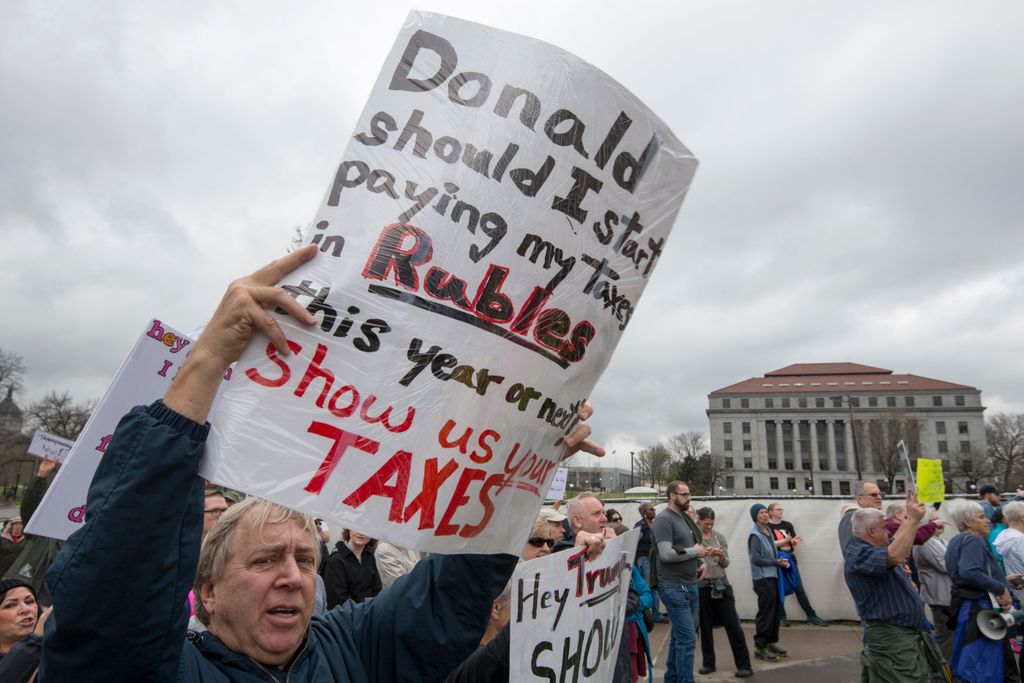
When pressed by Kristen Welker about what instills confidence that his MAGA movement will endure beyond his tenure in office, Trump responded, “You look at Marco; you look at JD Vance, who is fantastic.” He then broadened his scope, adding, “You look at — I could name 10, 15, 20 people right now just sitting here,” highlighting a deep bench of potential future leaders.
The mere mention of Rubio, in any context, particularly struck a senior White House aide as significant, given that it marked the first time Trump had so publicly identified him as a favorable prospect. This development, while not entirely surprising to those familiar with Rubio’s long – held White House ambitions, swiftly introduced elements of competition and rivalry — a dynamic that Trump has historically relished fostering among those who serve him.
Yet, expectations of an immediate clash between Vance and Rubio are perhaps premature and overstated, according to those close to both men. They are described as ideological allies who have, in fact, become good friends, suggesting a more cooperative rather than adversarial relationship. “They’ve got a really good personal and professional relationship, so if they’re both running, I have no doubt that there will be a conversation about it beforehand,” stated a person familiar with their dynamic, who was granted anonymity to provide candid insights into a politically sensitive topic.
Read more about: The Weight of War: How Ukraine Became President Trump’s Defining Conflict
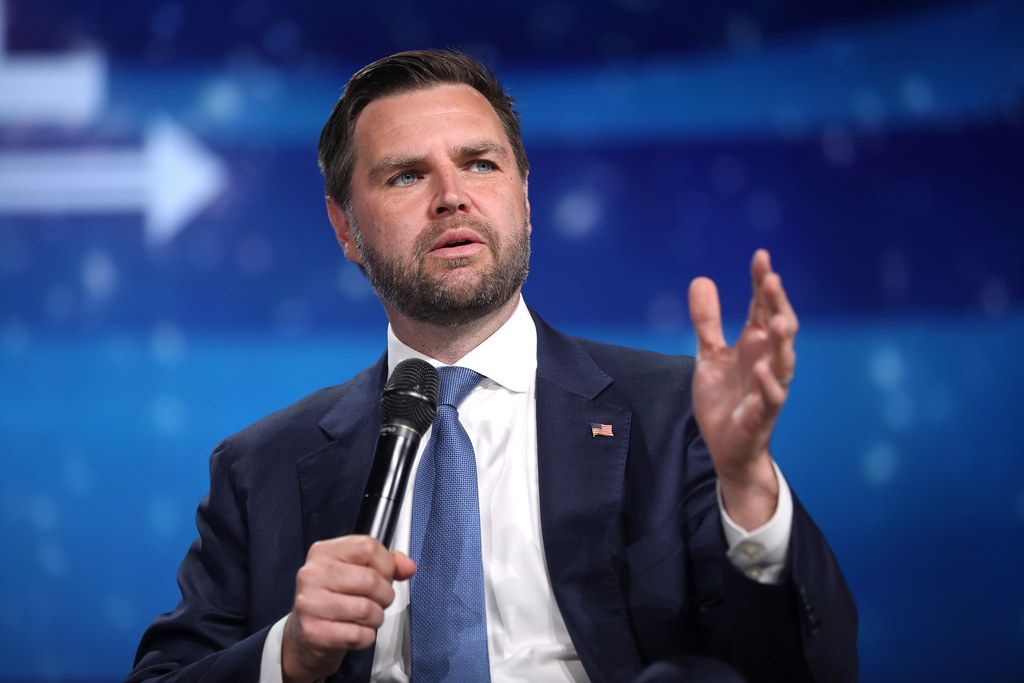
Three individuals within Rubio’s inner circle, when speaking with NBC News, acknowledged Vance’s higher rank in the line of succession and the polling data that reinforces his stronger standing among Republican voters. Consequently, they view Vance as having a “right of first refusal” regarding the Republican nomination in 2028, indicating a pragmatic understanding of the current political pecking order.
Among Vance’s allies, too, there appears to be no ill will towards Rubio. A person close to Vance emphasized that the two remain exceptionally close and expressed skepticism about a scenario in which Vance and Rubio would directly contend with each other for the presidency in 2028 at this juncture, suggesting a preference for unity.
However, Rubio is, without question, experiencing a notable ascent within “Trump world.” His rising prominence was distinctly punctuated just last week when President Trump appointed him as his interim national security adviser. This dual role makes Rubio the first person to simultaneously hold both the positions of Secretary of State and National Security Advisor since Henry Kissinger in the mid – 1970s, marking a remarkable accumulation of power and trust.
While an overwhelming sentiment has long existed internally that Vance would be the primary successor to carry on Trump’s political legacy, even some White House advisers are now beginning to perceive him and Rubio as being on an equal playing field in Trump’s estimation. “President Trump sees them as both very loyal and very talented; I think that’s very fair to say,” a senior Trump adviser affirmed, indicating a balanced view of their respective contributions.
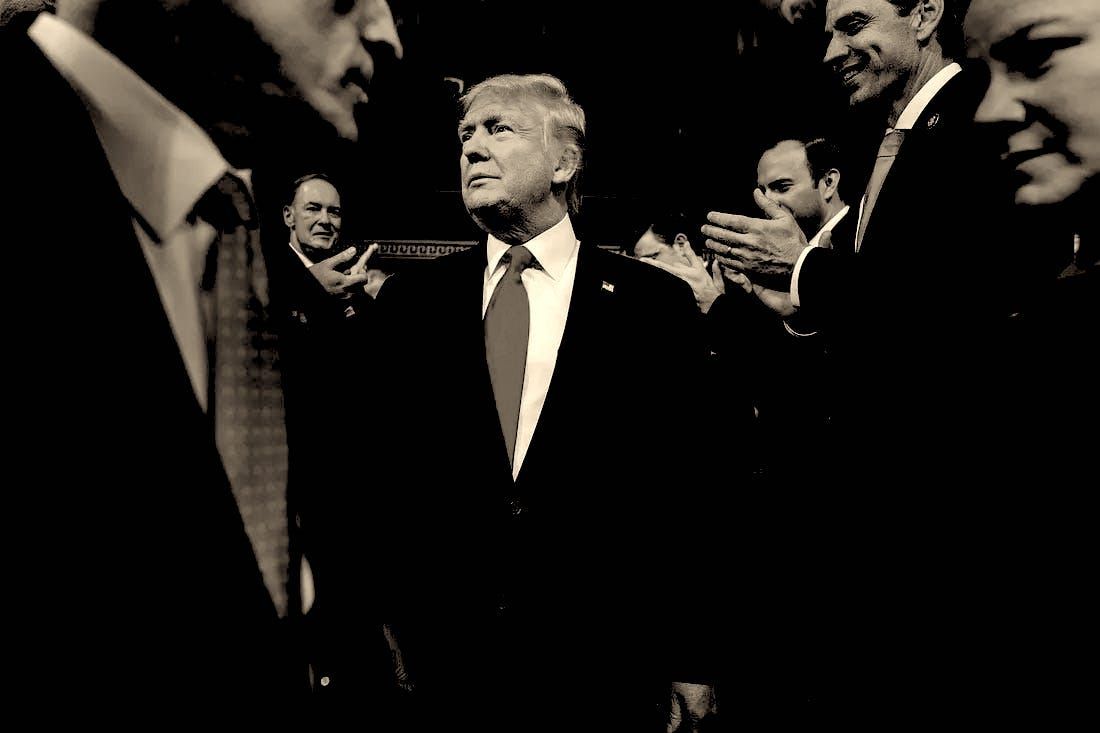
Rubio’s expanded portfolio signals, according to four sources who have consistently advised him, that he is diligently building a substantial political foundation. This strategic positioning could well establish him as a strong contender for the position of heir apparent to Trump — particularly if Vance were to encounter any unforeseen obstacles or “stumble” over the next three years.
“You would still have to give the advantage to Vance because he is the sitting vice – president,” a Rubio ally acknowledged when discussing a hypothetical 2028 showdown. However, this individual added, “But everyone in Rubio’s orbit is feeling really good about how things are unfolding. If, for any reason, Vance isn’t the one or the electorate is seeking an alternative, there is no question that Rubio is in the pole position for that.” This suggests a readiness to capitalize on any shifts in the political winds.
This same long – time Rubio ally further observed, “He is a person who can speak the language of MAGA but can also gain the confidence of your more traditional Republicans,” underscoring Rubio’s perceived ability to bridge different factions within the party. Another Rubio ally conceded that “Vance is the one for now, but as we have seen, for now isn’t forever.” This individual added, “There is a lot of time. It is important to remember that it’s early, but Rubio plays multiple roles now. That’s not by mistake,” hinting at deliberate strategic moves.
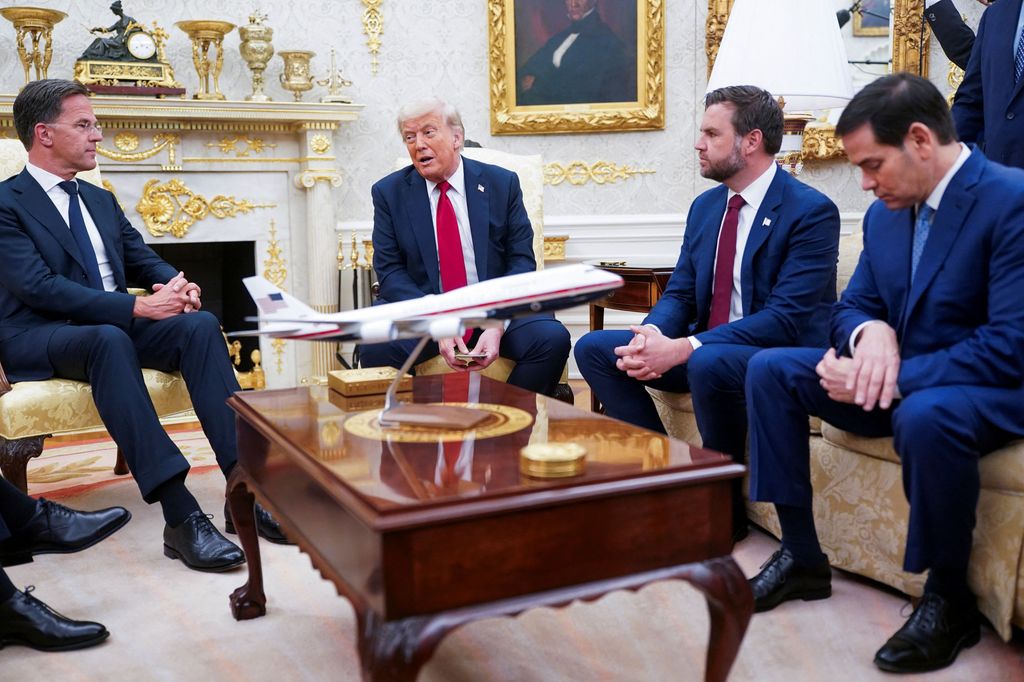
In the interim, neither Rubio nor Vance shies away from asserting their respective strengths in their interactions and meetings with President Trump. Just days prior to the “Meet the Press” mentions, Rubio was observed sitting beside Trump at an extensive, hours – long Cabinet meeting, impeccably dressed in a matching blue suit and red tie. At one point, Rubio revealed that he had discovered that a State Department office had compiled a dossier on another individual seated at the table, identifying the person “as purveyors of disinformation,” a file he stated would soon be handed over.
“Was it me or Elon?” Vance interjected, referring to Trump adviser Elon Musk and eliciting laughter. This playful yet pointed remark served as a subtle display of his perceived mastery over elements of the “deep state,” showcasing a shared ideological alignment and a sense of camaraderie mixed with competitive banter.
President Trump’s indulgence in discussions about succession, barely a hundred days into his second administration, closely follows his previous engagement with scenarios contemplating the circumvention of the Constitution to serve a third term. The latter conversation had, for a time, exerted a chilling effect on the 2028 GOP field, with no prospective candidate daring to move too far ahead of the sitting President.
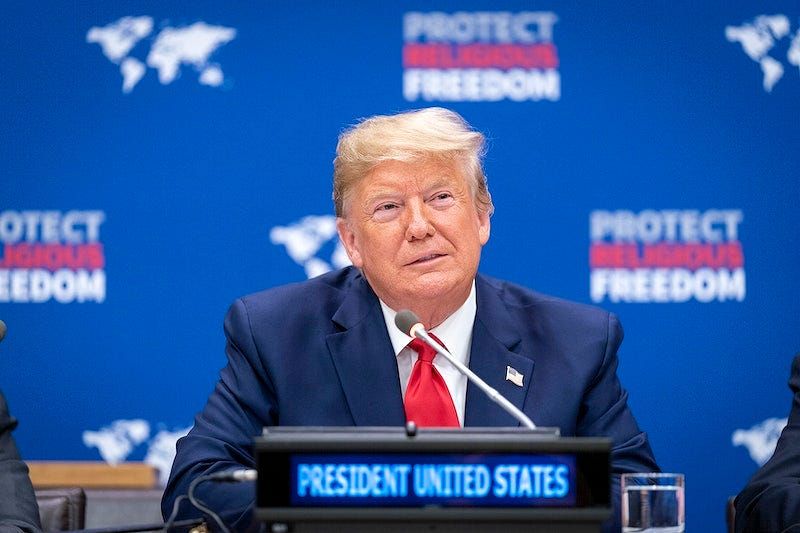
However, Trump recently distanced himself from the third – term discussions in the “Meet the Press” interview, suggesting that he would be content to enter the history books as an “eight – year president.” While stating, “So many people want me to do it. I have never had requests so strong as that,” in reference to methods that could bypass the Constitution, Trump clarified, “But it’s something that, to the best of my knowledge, you’re not allowed to do,” demonstrating a degree of constitutional adherence.
Early polls attempting to gauge a potential 2028 Republican primary field already show Vance with a wide plurality, operating under the assumption that Trump does not pursue another run. Rubio, in these same surveys, typically registers in the single digits. A recent Economist/YouGov survey, for instance, found that a significant 43% of Republicans and Republican – leaning independents who responded selected Vance as their “ideal” GOP nominee. This was followed by Donald Trump Jr. at 11%, Florida Gov. Ron DeSantis at 8%, and Rubio trailing at 4%, illustrating Vance’s current formidable lead.
Critics have, for years, struggled to reconcile the Marco Rubio of the 2016 campaign — who ran as an establishment – friendly candidate known for his openness to immigration reform — with the Rubio they now observe seemingly embracing a more robust MAGA doctrine. However, those close to him assert that any perceived “transformation” was not an abrupt, overnight phenomenon that solely materialized once he was selected as Secretary of State.
“He demonstrated the one thing Trump values above any other quality,” commented a long – time Republican operative who had previously supported Rubio — “loyalty to Trump while actively preaching the gospel of Trump.” This assessment underscores the critical importance of unwavering fealty in the President’s inner circle, a quality Rubio has clearly demonstrated.
In the years leading up to Trump’s second presidential bid, Rubio steadily gravitated toward the school of right – wing thought that has significantly risen in prominence within the party. He notably attended National Conservatism conferences, popular gatherings with then – colleagues like Vance and Senator Josh Hawley, Republican of Missouri, who are broadly in alignment on several key policy areas where Trump has spearheaded a shift in GOP orthodoxy.
“I think my instincts have always been where they are now,” Rubio told NBC News in a 2021 interview, asserting a consistent ideological trajectory. He added, “As you’re exposed to new facts, new realities, and as the world changes, so, too, does your public policy response to it,” suggesting an adaptive yet rooted approach to his political evolution. Vance and Rubio developed a friendship during their shared tenure in the Senate. They recognized each other as fellow converts to Trump’s movement and as ideological peers on critical issues that Trump had fundamentally reoriented Republicans around, such as trade policy. A source close to Rubio confirmed that he and Vance are close and “were very much swimming in the same policy circles,” indicating a deep, shared intellectual and political bond.
Another crucial factor in Rubio’s ascension within Trump’s inner circle has been the extensive face – time he has dedicated to being around Trump, both at the White House and at the President’s Mar – a – Lago estate in Florida. Four senior administration officials relayed to NBC News that Rubio endeavors to spend as much time as possible at the White House to maintain close proximity to Trump, while a person close to him noted that he has become a regular presence at Mar – a – Lago, where Trump typically spends most weekends, illustrating his consistent engagement.
To the extent that Vance and Rubio were indeed rivals during Trump’s running – mate selection last year, there was remarkably limited sniping or public antagonism between their respective teams. Instead, a mutual understanding prevailed that both individuals were more in sync with the core tenets of Trumpism than then – North Dakota Governor Doug Burgum, another finalist for the pivotal role, highlighting a shared ideological foundation that transcended individual ambition.
Their friendship has demonstrably deepened and tightened during their shared time in the Trump administration. Each has diligently worked to cultivate and maintain robust relationships with influential tastemakers on the far right. Vance and Rubio both, for instance, were notable guests at an inaugural ball hosted by Turning Point USA, the highly influential group led by prominent far – right activist Charlie Kirk, underscoring their commitment to connecting with key grassroots and ideological figures.
The vice presidency, by its very nature, might offer Vance more inherent stepping – stones to the Oval Office. Much like Rubio, he has been afforded opportunities to travel the globe, thereby gaining the invaluable type of foreign policy experience that can significantly bolster a future White House bid. This exposure provides a foundation for the global leadership required of a president.
However, Vance, as Vice President, also benefits from fewer constraints compared to Rubio, who, as a diplomat, faces limitations when it comes to engaging in political campaigns and partisan activities on the side. Vance’s direct hand is already evident in Ohio’s upcoming race for governor, a key mid – term contest slated for next year that could potentially elevate Trump ally Vivek Ramaswamy, demonstrating his active involvement in electoral politics. With President Trump’s explicit blessing, Vance also holds the position of finance chair for the Republican National Committee — a strategic role that will ensure he remains deeply connected to some of the party’s most significant donors between now and the critical 2028 election cycle.
And while President Trump, in the “Meet the Press” interview, seemed to place Vance and Rubio on a somewhat equal footing for 2028, stopping short of anointing Vance as the undisputed favorite, he nonetheless indicated that the nomination could ultimately be Vance’s to lose. “Marco is great. There’s a lot of them that are great,” Trump stated, acknowledging a broader pool of talent. However, he concluded with a decisive observation: “I also see tremendous unity. But certainly you would say that somebody’s the VP, if that person is outstanding, I guess that person would have an advantage.” This statement succinctly encapsulates the powerful leverage that the current vice presidency confers upon JD Vance, making him the formidable frontrunner for the MAGA torch, even as the path forward remains intricate and multi – faceted.
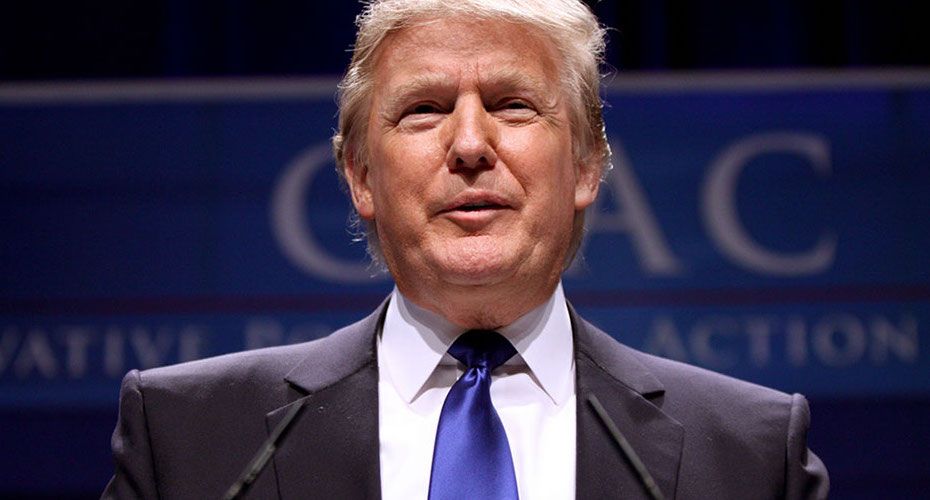
Read more about: Federal Control Looms: Trump Renews D.C. Takeover Threat After Assault on Former Government Efficiency Worker
As the curtain rises on President Trump’s second term, the quiet but firm pronouncements regarding his potential successor signal a deliberate and forward-looking strategy for the MAGA movement. While the political calendar points to 2028 as a distant horizon, the early designation of JD Vance as the “most likely” heir, coupled with the intriguing prospect of a partnership with Marco Rubio, paints a vivid picture of the Republican Party’s evolving landscape. It is a testament to the enduring influence of President Trump that, even now, with years remaining in his current term, the architecture of the future MAGA leadership is already being meticulously outlined, ensuring that the movement’s formidable energy continues to shape the trajectory of American politics for years to come.



